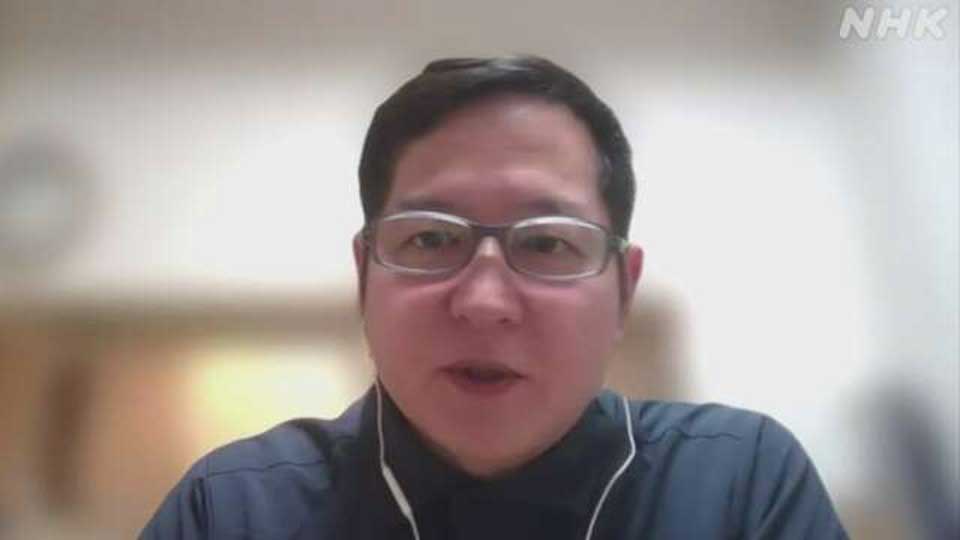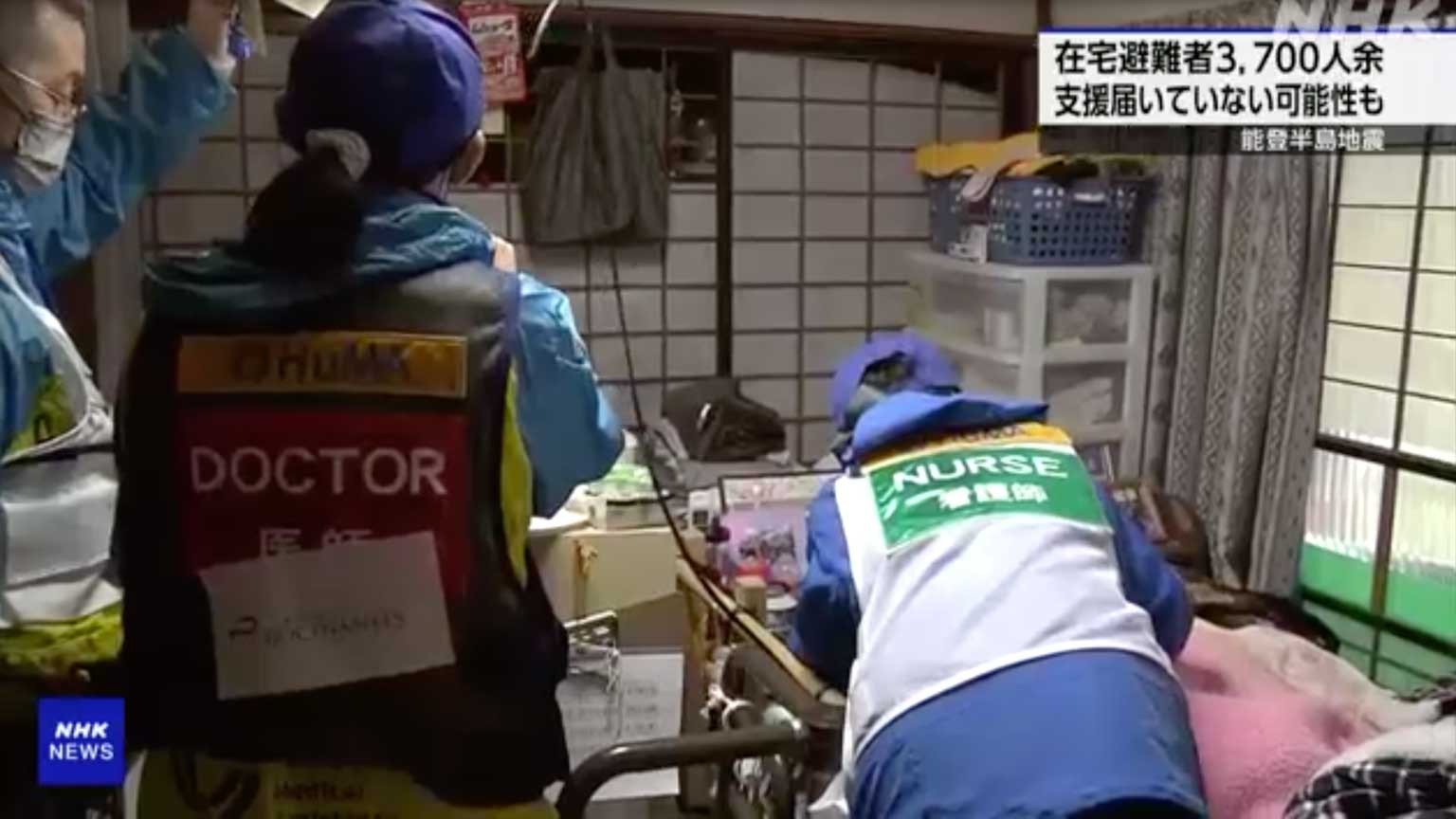Officials at the Northern Noto Medical Association say as of February 5, building damage and water outages due to the New Year's Day earthquake had forced the suspension or reduction of services at 11 medical facilities in the cities of Wajima, Suzu, and others.
A HuMA team recently visited a 92-year-old woman in Horyu Town, Suzu. She is almost entirely bedridden and is sheltering at home. Her daughter who lives with her said, "I worried my mother would fall ill from the stress if she had to move. I thought it would be very helpful to have a doctor or nurse come in and reassure us."
The three HuMA doctors and nurses who visited the woman were dispatched from the Kansai region, western Japan. One of the doctors described cases of diabetes patients who were unable to get to hospital, and whose conditions could have worsened without care and a proper diet.
"The affected region is wide, and some home evacuees were overlooked in the government survey," says Dr. Ino Haruka. "General practitioners with close ties to their communities have also been affected by the disaster. Even if they want to respond they may be unable to do so for some time. I think groups like ours can provide support until these situations are resolved."

Dr. Natsukawa Tomoaki, director of HuMA and an expert on disaster medicine, says many elderly evacuees are staying at home despite the harsh conditions. Ensuring they get care is a challenge. "Immediately after the earthquake, we had no choice but to focus on people in evacuation centers," he says. "It was only after several days that we were able to identify those who continued to live at home. There is the possibility their health may have deteriorated during this time."
Regarding the future, Natsukawa says, "We are continuing on outside contributions and by rotating our medical staff, but it will be difficult to carry on like this on a permanent basis. We need to hand over our responsibilities when the water outages are resolved and local people come back and reconnect the community with the healthcare system."

